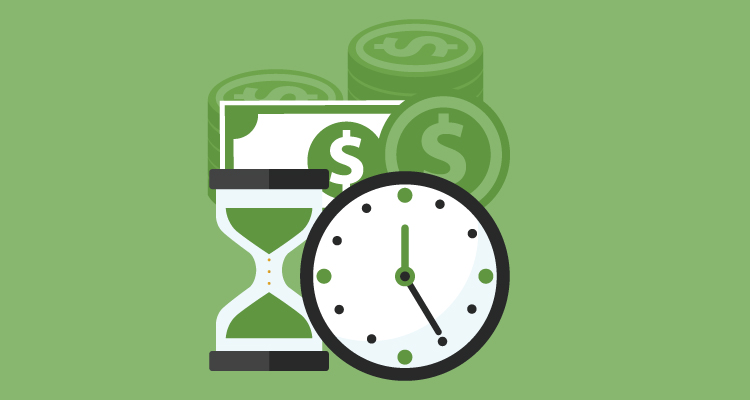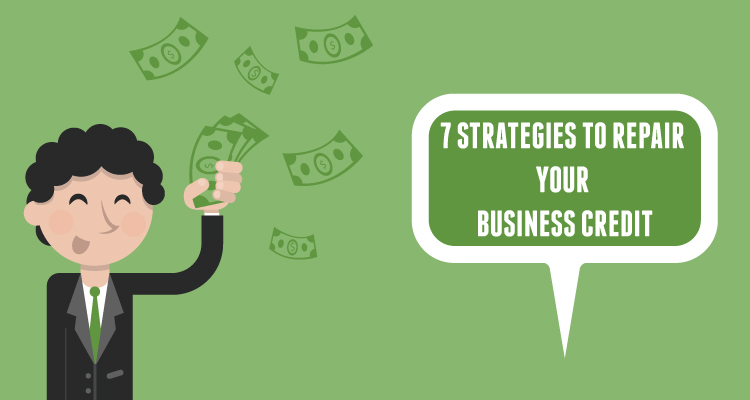If you want your business to thrive and grow, then building and maintaining good credit is a necessity. Unfortunately, we don’t live in a perfect world. It might be time to repair your business credit.
Clients bail on paying invoices for your products or services which then prevents you from being able to pay your expenses. It’s frustrating and embarrassing. But, it’s the reality of being a business owner.
But, what can you do to repair your business credit after going through this rough patch?
Here are seven strategies to repair your business credit score, which will in turn, pave the way for your long-term success.

Table of Contents
Toggle1. Make Payments On-Time
“Past-due payments can negatively affect your business credit scores and ratings and sour relationships with vendors,” says Marco Carbajo for Dun & Bradstreet. “Making on-time payments – especially to trade references – can be an important part of rebuilding business credit.
“Paying your debts on time can help demonstrate a record of financial responsibility, which may help you repair your business credit scores and ratings.”
If you’re not in a position to pay off all of your debts on time, Carbajo suggests that you start with the largest invoices. For instance, the D&B PAYDEX® Score is dollar-weighted, “so you may be able to limit damage to your business credit file if you first cover the costliest debts owed to trade references.”
Furthermore, if you’re struggling with making timely payments, you should reach out to your creditors and negotiate more favorable terms.
2. Reduce Your Debt On “Revolving Credit” Accounts
Credit scores are obviously impacted by how much debt you have. However, Maxine Sweet explains in a post for Experian that lenders also consider your utilization rate. In other words, they’re going to analyze “how much debt you have vs. the amount of credit available to you.”
“For example, if you owe $5,000 on a credit card and have a credit limit of $10,000, you’ve used up 50 percent of your available credit. That means you would have a 50 percent utilization rate, which is very high and likely to hurt your credit scores.”
When reducing your debt you want your utilization rate to be under 30 percent on all of your revolving accounts. In a perfect world, you should only charge whatever you can payoff each month.
Here are the steps to help you find credit cards with high utilization rates:
- Review the last credit card billing statement for each card
- Write down the credit card debt owed
- See what your credit limit is for each card
- Divide your credit card debt by your credit limit (and then multiply by 100)
- Calculate your utilization rate for each card, and identify any cards over 30 percent
3. Rehabilitate Past-Due Accounts
All’s not lost if you’re past due on an account. Contact the creditor or lender and strike a deal with them that states that if you make at least 6 to 9 consecutive payments on-time, they’ll remove any negative marks or delinquencies from your account.
Since this isn’t something that lenders frequently offer, or are required to do, you’ll have to reach out and negotiate with them.
Here’s a sample pay for delete letter from The Balance that you can use to get this process started.

4. Open Accounts and Don’t Close Any
“Every small business owner should have at least one to two credit accounts,” says Ramon Ray on MasterCard Biz. Despite the fact that “no credit” doesn’t equate bad credit, “there is nothing for lenders to use in evaluating your credit history, and you will most likely be turned down for the loan,” says Ray.
When you do open new accounts or lines of credit, set-up automatic payments so that they’re paid on-time. And, make sure that you do not open too many accounts. Stick with the accounts that you only need.
Additionally, closing accounts doesn’t always repair your business credit score. In fact, it could do damage to your score. Ray recommends that “if you have a credit card you have not used in a while, make a small purchase and pay it off immediately. Keeping an account open increases your overall debt availability, which raises your business credit.”
5. Add Positive Trade References
“Adding positive payment experiences that your company has with suppliers, vendors or business partners may have a positive impact on your business credit ratings and scores,” says our friend Marco Carbajo in an article for SBA.gov.
“Although not all vendors and suppliers share payment data with a business credit-reporting agency; you have the opportunity to add trade references to your company’s Dun & Bradstreet (D&B) credit file.”
In fact, it’s a number of trade experiences reporting on your business credit report that generates a business credit rating. For a Paydex Score with Dun & Bradstreet, for example, you’ll need at least three trade references.
6. Keep Business and Personal Finances Separate
In a previous Due post, Max Palmer said that “it’s important to keep your personal and business finances separate.” The first reason is that it matters to the IRS.
“If you use items for personal purposes, you can’t deduct them as business expenses and use them to offset your business income,” says Palmer. If you don’t keep these costs separate, you could be subject to an audit.
Separating your business and personal finances makes your record-keeping less complex and makes analyzing your budget easier.
When you use your Employee Identification Number instead of your Social Security Number you’re not only impacting one score, you are impacting the other. For example, negative marks on your personal account could lower your business’s credit score if they are not separated.
The easiest ways to keep these accounts distinct from each other is to have separate bank accounts and lines of credit.
7. Get a Secured Bank Loan
While loans can help rebuild your credit, what can you do if you don’t qualify for an unsecured loan? You could obtain a secured bank loan.
Secured bank loans doesn’t require the great-of credit scores because it’s backed by an asset. For example, when you purchase a car, the bank holds the title until the vehicle is paid-off. But, if you already own a vehicle or a savings account or a certificate of deposit, then those could be used to get a secured loan.
Before applying for a secured loan, make sure that you have enough money to make the payments each month. If so, then this is a solid strategy in repairing your business’s credit.
NerdWallet has a useful article that explains secured and unsecured loans in more detail.














